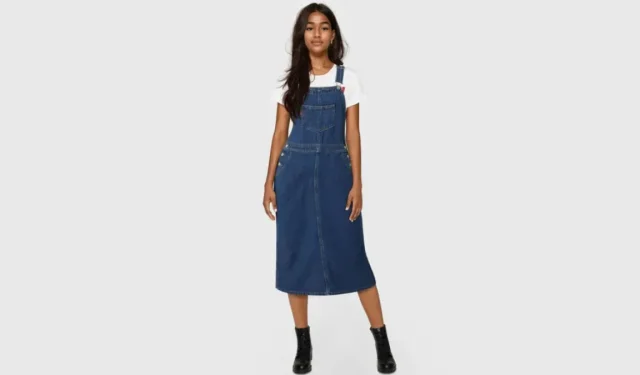Levi’s to use AI models to ‘increase diversity and sustainability’

Levi’s will use artificial intelligence models to “increase diversity and sustainability.”Why not use flesh and bone models?
Artificial intelligence has been on everyone’s lips since the advent of programs like ChatGPT and Midjourney, and brands are getting into it too (fortunately or unfortunately, depending on). This week, iconic denim brand Levi’s announced a partnership with Lalaland.ai, an artificial intelligence studio that creates fashion models using artificial intelligence. Levi’s intends to test the use of these models to “complement human models, increase the number and variety of [its] models for [its] products in a sustainable manner,”the company said in a statement.
Levi’s to use AI models to ‘increase diversity and sustainability’
Lalalaland.ai creates “hyper-realistic”models of any body type, age and skin color. According to his website, companies such as Calvin Klein and Tommy Hilfiger have already worked with the studio.
“While artificial intelligence will never completely replace our human models, we are excited to see the possibilities it can bring to our user experience,” said Dr. Amy Gershhoff Bolles, Head of New Technologies at Levi Strauss.
At the same time last year, Levi Strauss laid off 700 employees, or about 15% of its payroll, as part of a massive restructuring initiative. The layoffs saved the company $100 million, according to USA Today.
Why not use flesh and bone models?
Levi’s also says in a statement that its diversity efforts will go beyond the use of AI models, saying the brand will focus on working with content creators both in front of and behind the camera who “reflect [their] consumer base.”However, no one knows how this move fits into the use of fake models instead of paying flesh-and-blood models, make-up artists and photographers.
The company’s move to AI-driven models reflects attempts by many other industries to replace real people with AI. Last August, Capitol Records signed and then fired AI rapper FN Meka. The latter were singled out after, in particular, using “gross stereotypes”regarding black culture.
Leave a Reply